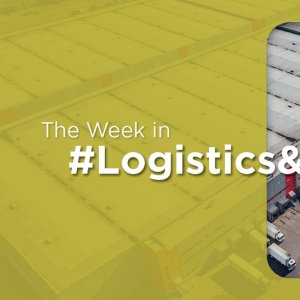
Innovative Solutions Ensure Free-Flowing Pipelines
 By José Escobedo | Senior Editorial Manager -
Thu, 11/17/2022 - 14:15
By José Escobedo | Senior Editorial Manager -
Thu, 11/17/2022 - 14:15
To operate pipelines both safely and smoothly, regular and thorough cleaning services must be incorporated in any maintenance program. For the past 30 years, ROSEN Group has consolidated its reputation by offering these services with dependable pipeline cleaning solutions to operators and other clients around the globe. Optimizing pipeline uptime, extending the lifespan of assets and reducing costs by increasing efficiency through astute maintenance processes are just some of the many advantages ROSEN’s partners can obtain. Simply put, taking pipeline cleaning programs to the next level should be seen as a savvy investment that creates long-term value. This includes reducing CAPEX by cutting down on maintenance costs, which can quickly accumulate and put prime assets out of action for an extended period.
Depending on the stage in a pipeline’s life cycle, specific cleaning requirements can vary. For example, for new pipelines, pre-commission cleaning is required following construction, since oils, grease and protective coatings may scale during the manufacturing process, impacting the surfaces of pipe walls.
Once commissioned, dewatering, drying and conditioning are required for service preparation and as a standard operational cleaning procedure. Pipelines must then be cleaned and prepared in the event of a change of service. In the final stages of a pipeline’s life cycle, a special cleaning service is necessary prior to the cessation of production (COP), which is then followed by a further decommissioning cleaning service before a pipeline can be abandoned or recycled. ROSEN offers its clients tailored solutions to address the specific cleaning requirements for each stage in a pipeline’s life cycle, ensuring that deposited debris that collects within the pipeline is removed to promote pipeline efficiency and prevent corrosion that inhibits pipeline performance.
Moreover, each pipeline is unique and cleaning requirements depend on the various contaminants present. Whether wax, scale, sand, hydrates and even water — all threaten to hinder pipeline efficiency. A thorough and routine maintenance program must be enforced to ensure pipelines are cleaned often and regularly, eliminating inefficiencies and extending the operational life of an entire pipeline network. Failure to do this raises serious efficiency, safety and reliability concerns for the entire pipeline network, obstructing the continuous flow of gas or the transportation of any other medium. Furthermore, the buildup of foreign matter and dirty pipeline surfaces cause corrosion, abrasion and pipe thinning by preventing corrosion inhibitors from being applied correctly and consistently.
In addition to boasting an extensive portfolio of clientele in various countries, ROSEN, with its fleet of seven technology and research centers across the world, makes it a priority to address individual country risks, assessing and preparing for the different threats that can harm pipeline integrity within an array of different environments and circumstances, with noteworthy operational experience in desert and mountainous terrain as well as offshore, an increasingly important segment of the oil and gas industry.
In the case of Mexico, the country’s mountainous terrain in particular has traditionally posed notable risks. This is because in areas of low elevation, water collects increasing the humidity levels within the pipeline and, therefore, compromising the integrity of the asset. Increased humidity levels can also affect standard drying activities, making the use of pig runs significantly less effective, since it is much more difficult to displace liquids uphill and such steep changes in elevation along the route of the pipeline can cause cleaning tools to seal. This results in much of the liquid bypassing the pig.
In an effort to solve this issue, ROSEN’s team of experts successfully devised a plan to reconfigure the standard dewatering and drying service to clear as much liquid as possible from pipelines before deploying a series of foam pigs to soak up the remaining liquid like a sponge. The dewatering program begins with the deployment of a dewatering train, made up of two “ultimate” cleaning pigs together with several sealing discs and brushes, including five low-density foam pigs and three high-density foam pigs. This train is propelled through the pipeline by the flowing gas, clearing out not just the liquids in the pipe but also any dust and debris that has accumulated.
Since the resulting sludge cannot be sent downstream into the next section of the pipeline, a separation and filtration system is installed at the receiver end, which separates the sludge from the gas and filters out any smaller particles from the medium, preventing any damage to the pipeline system. Drying tool trains are used after the dewatering run is complete to reduce moisture and restore the pipeline to acceptable humidity levels. A handheld dew point meter can be used at each valve across a pipeline to verify that moisture levels are decreasing after each tool train is deployed. Excess gas can be vented or flared across the pipeline route to allow for these measurements to be taken.
ROSEN technicians can also inject nitrogen directly into the system at a high flow rate when they are unable to access any section of the pipeline from inside to dry out the systems without interfering with the product itself. Thanks to this process, ROSEN has ensured the efficient performance of Mexican pipelines, in line with the Mexican government’s regulation, NOM-001-SECRE-2010, which stipulates that gas pipelines must be operated at humidity levels below 110mg/m3.
ROSEN also possesses valuable expertise and experience servicing pipelines in desert environments and offshore. Given the expanded role natural gas, especially from deepwater fields in the Gulf of Mexico, is set to play in the energy transition and Mexico’s pursuit of energy sovereignty, there are few companies that are better equipped to ensure the integrity of critical midstream infrastructure. Among the most emblematic and high-profile projects ROSEN participates in is the Trans-Adriatic Pipeline, a 878km-long natural gas pipeline that has been operating since 2020 and connects the Shaz Deniz II field in the Azeri Caspian Sea to Puglia in southern Italy, traveling through Turkey, Greece and Albania. This experience serving a pipeline system, which traverses mountains, deserts and sea alike, will undoubtedly prove invaluable for operators in Mexico.


















